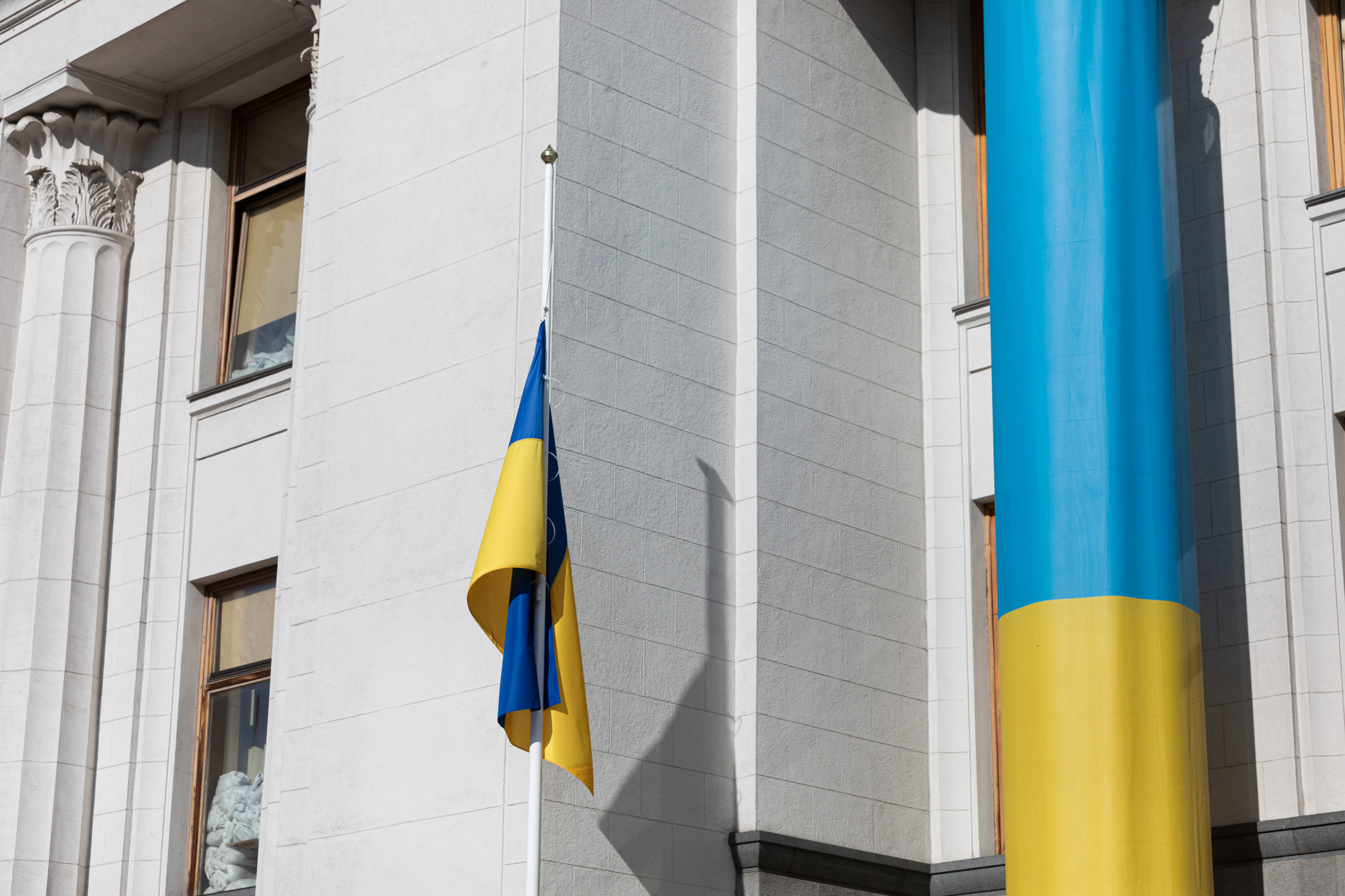According to internationally recognized standards, legal proceedings must not be politically motivated. However, it is impossible to ignore that the Nuremberg Tribunal and the Tribunal for the Far East (Tokyo Trial) after World War II were created based on the powerful political impetus of the countries that determined the postwar world order. The Soviet Union also ended up among these states, even though it had begun World War II as an ally of the Reich. The composition of the victorious states that became these tribunals’ founding countries largely defined their jurisdiction over the circle of persons. It is essential to pay attention to the charters of the judiciary that dealt with the crimes of World War II.
The scope of jurisdiction over the circle of persons was already defined by the formal name of the Nuremberg Tribunal: the International Military Tribunal for the prosecution and punishment of the major war criminals of the European Axis. Article 6 of this tribunal’s Charter clearly stated that it had the power only to try persons acting in the interests of the European Axis countries. The term “European Axis countries” means the countries of the European continent participating in the 1940 Tripartite Pact. The USSR was not among those countries, although it had been a real ally of Germany until June 1941.
Interestingly, the Charter of the Tokyo Tribunal did not formally provide for such a framework. However, it de facto worked within similar limits, trying only persons belonging to the Japanese Empire.
Personally, I see two main reasons for such selectivity in post-war justice.
First, the USSR came out of World War II as a country retaining a significant military capacity (including thanks to the help of Western allies). When the difficult and bloody war ended, the democratic nations of the anti-Hitler coalition did not want to aggravate relations with the totalitarian Soviet Union because of the risk of a new large-scale war. Such policies led to condoning Soviet crimes.
Second, efforts to prosecute Soviet criminals could pose inconvenient questions to Western democrats about their own war crimes (indiscriminately bombing German cities, using nuclear weapons against Japan, etc.). As one of the opponents of the bombing of Hiroshima and Nagasaki, American physicist Leo Sillard rightly put it: “Suppose Germany had developed two bombs before we had any bombs. And suppose Germany had dropped one bomb, say, on Rochester and the other on Buffalo, and then having run out of bombs, she would have lost the war. Can anyone doubt that we would then have defined the dropping of atomic bombs on cities as a war crime and that we would have sentenced the Germans who were guilty of this crime to death at Nuremberg and hanged them?”
The lack of legal assessment of the Allies’ actions (including the USSR) containing signs of severe international crimes negatively affects the perception of trials after World War II. Their critics often speak of a “tribunal of winners over losers” in an attempt to undermine their legitimacy. However, this is only partly true. The quality of the Nuremberg and Tokyo trials must be assessed primarily through the prism of compliance with the standards of justice. Yes, ignoring the Allies’ crimes is a deficiency, but it does not preclude the criminality of those who found themselves in the dock after the war.
Drops of responsibility in a sea of impunity
However, former members of the Soviet military were also tried for some crimes committed during World War II. The prosecution was mainly carried out by courts of the Baltic countries: Latvia, Lithuania, and Estonia. The case of Vasiliy Kononov, a Soviet partisan leader who led a punitive mission in the Latvian village of Mazie Bati in May 1944, during which nine civilians were killed and a pregnant woman burned alive, is illustrative in this regard. Latvian courts convicted Kononov as a war criminal, after which he filed a complaint with the European Court of Human Rights. In Kononov’s case, the Grand Chamber of the ECHR noted that he and members of his detachment had violated the basic principles of international humanitarian law based on general human considerations the Soviet combatants should have been familiar with at the time of the episode. This principle is essential in assessing World War II’s crimes. The thing is that international humanitarian law has significantly changed in the post-war period. The 1949 Geneva Conventions were enacted mainly in response to the challenges of this armed conflict, and the case-law of international tribunals dealing with other armed conflicts (ICTY, Rwanda tribunal, etc.) emerged. Of course, post-war regulations are more well-considered than those formally enshrined in international treaties before the war. However, this does not mean that international crimes, whose danger and gravity are surely obvious, should be ignored just because they were not formally enshrined or articulated back then.
Still, despite their importance, the Kononov case and similar cases are insignificant compared to the array of crimes of the USSR that have not yet been addressed.
International criminal justice matters
Preventing impunity for any crime is very important since the very idea of criminal responsibility is meant to reform perpetrators to prevent future crimes. It applies to individuals and countries and covers ordinary and international crimes.
Countries that have undergone systematic condemnation of war crimes and embarked on the path of democratic development and sustainable peace are Germany, Japan, and Italy.
However, the russian state that officially deems itself the legal successor of the USSR, whose crimes were never systemically condemned, is also its successor in wrongdoing. The lack of a consistent legal assessment of Soviet crimes (including during World War II) also laid the basis for the fusion of present-day russia’s idea of its own history’s complete righteousness and the commission of crimes today.
Is it possible to be responsible for past crimes in the future?
The gravest international crimes have no statute of limitations, and, purely theoretically speaking, their prosecution is possible at any time. As mentioned above, russia’s ongoing aggression against Ukraine, closely resembling the crimes of the USSR and being a consequence of their impunity, may also increase interest in Soviet crimes of the past. For instance, in April 2022, Polish President Andrzej Duda said the Katyn massacre is a crime that international courts need to consider. It is possible that the Ukrainian authorities, too, will eventually be interested in a systematic condemnation of the crimes committed by the USSR during World War II.
Yet we should not forget about the many challenges associated with such processes in Ukraine. First, creating a new judicial body or entrusting such work to existing ones requires significant resources. Second, most of those who committed World War II crimes are no longer alive. Third, the main body of evidence for such crimes is archival materials requiring specific skills to work with them. It would be impractical to entrust such a massive scope of complex work to courts of general jurisdiction, already overloaded with cases relating to the current russo-Ukrainian war. Creating a separate court for this would be contrary to the Constitution of Ukraine.
The solution may be to create specialized non-judicial institutions employing professionals from various fields: history, law, archives, etc. Historians and archivists could search for and verify evidence, and lawyers could evaluate it legally. The regulatory framework for such activities may be the law of Ukraine on the condemnation of communist and national socialist (Nazi) totalitarian regimes in Ukraine and prohibition of propaganda of their symbols, in particular, Article 5.
And let’s dream a little
Impunity for the USSR’s crimes during World War II raises another vital issue: impunity for international crimes per se. As mentioned above, awkward questions may be asked of all participants in World War II, including the victorious states. The same questions can be asked after any armed conflict. Even if a country waged a defensive war justified under international law, some of its agents still might commit international crimes. A nation does not gain any immunity applying self-defense principles, and neither does the aggressor state committing crimes (regardless of their scale).
An important contribution to ensuring respect for international law and preventing international crimes in the future could be the establishment by the world community of an institution that would provide a legal assessment of acts that have not been under court review. Of course, such a decision currently seems utopian as it requires a consensus of many political forces, and each of them has skeletons in the closets of their history. But why not start discussing such an idea? A little over a century ago (and this is nothing in history), the world did not know the legally established categories of “human rights,” “crimes against humanity,” or “genocide,” which we use freely today, and which have real legal consequences. They also began as ideas once.
After all, trying to hide from past mistakes is an indicator of weakness, while the ability to admit them is a sign of strength.
Attention
The authors do not work for, consult to, own shares in or receive funding from any company or organization that would benefit from this article, and have no relevant affiliations


